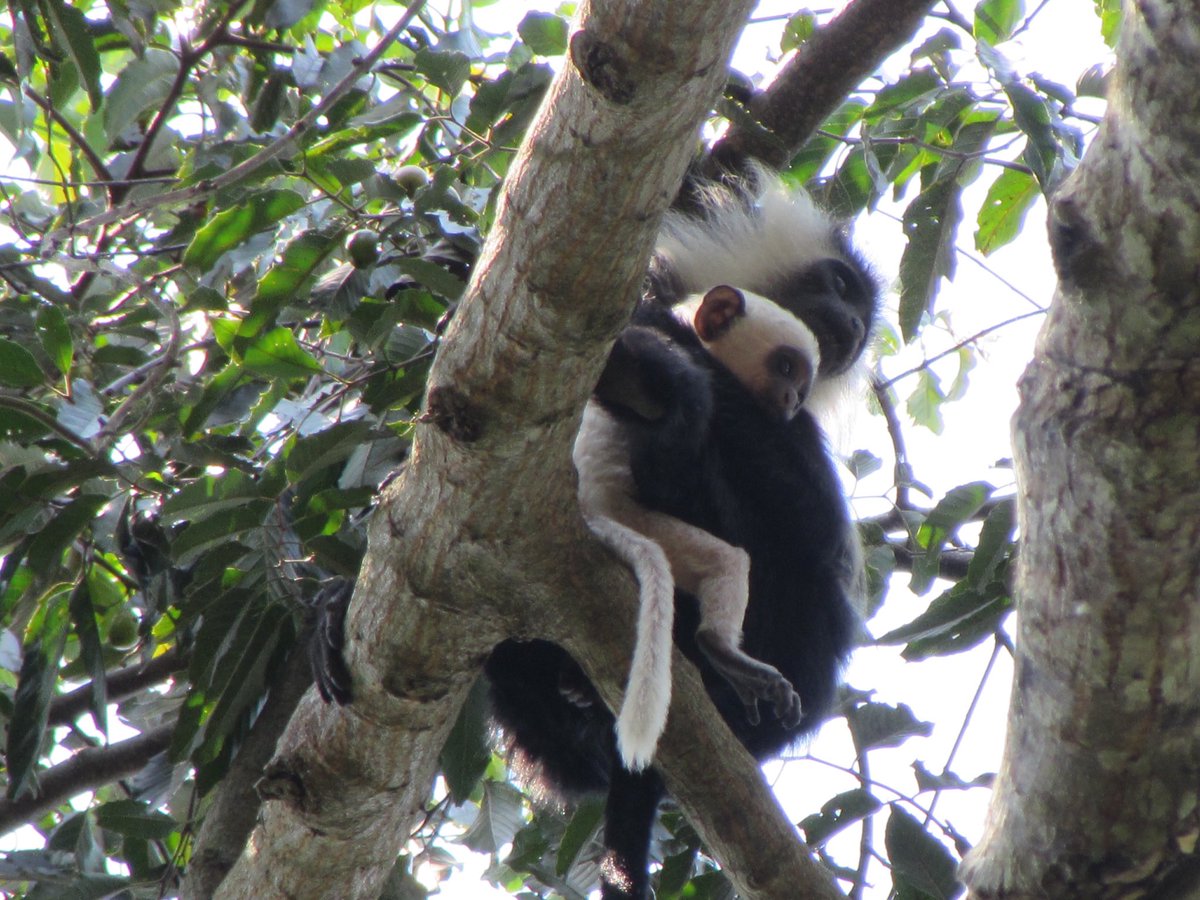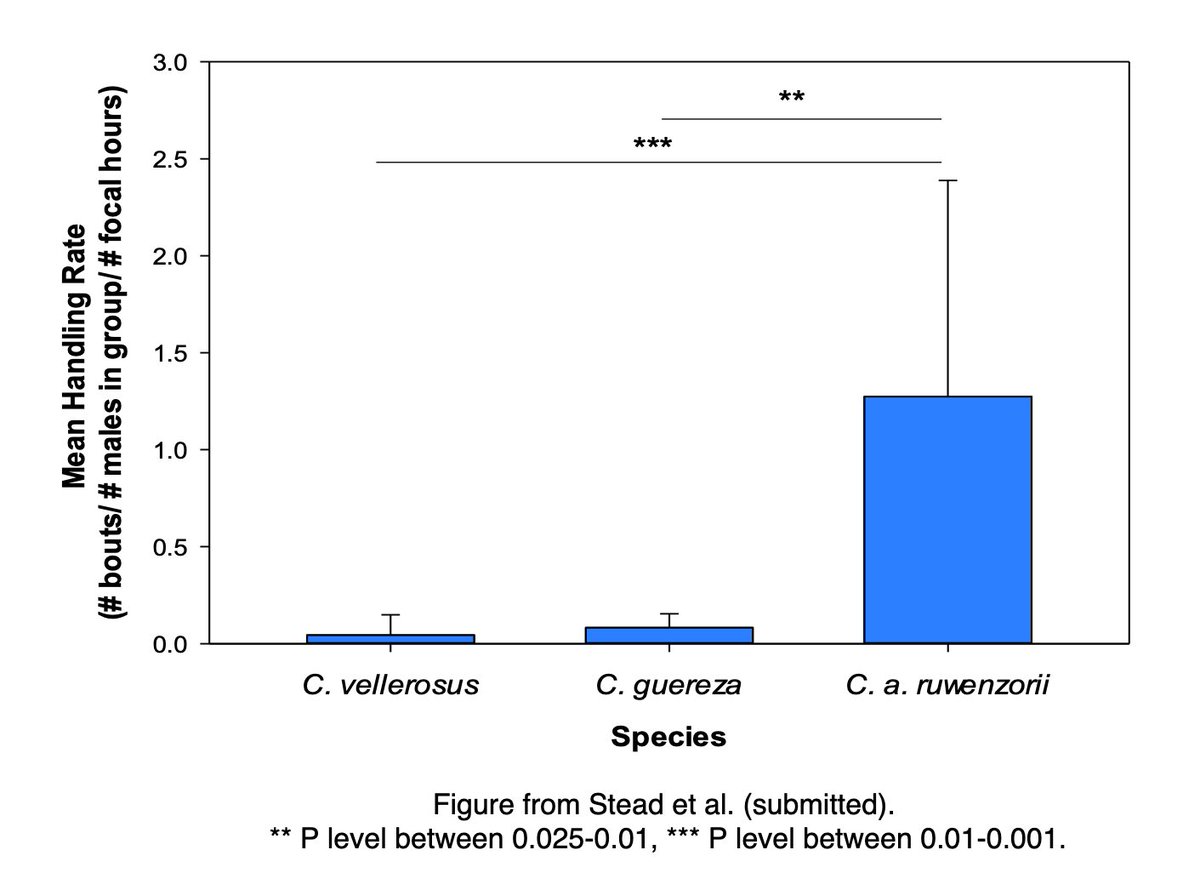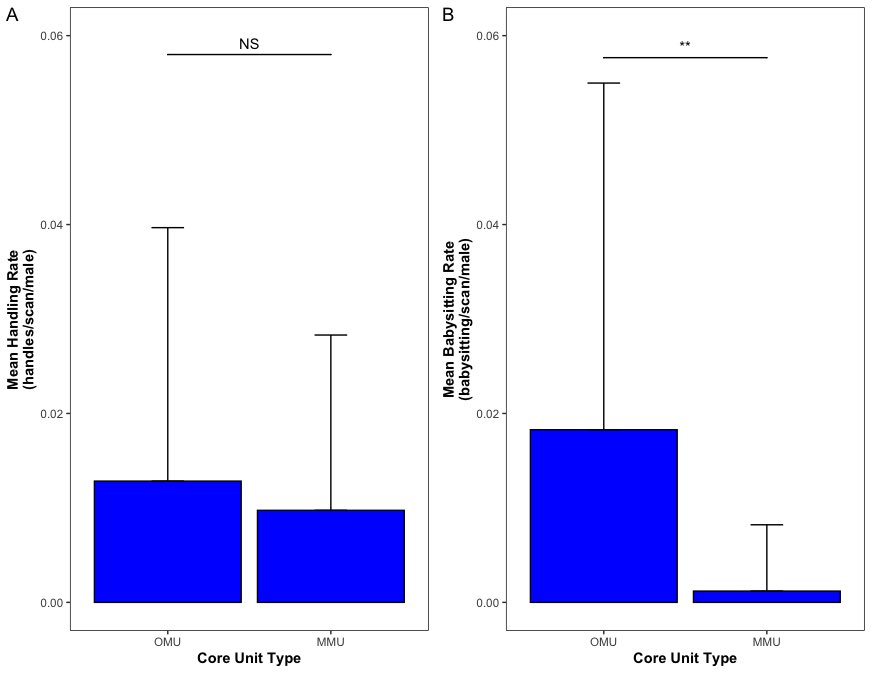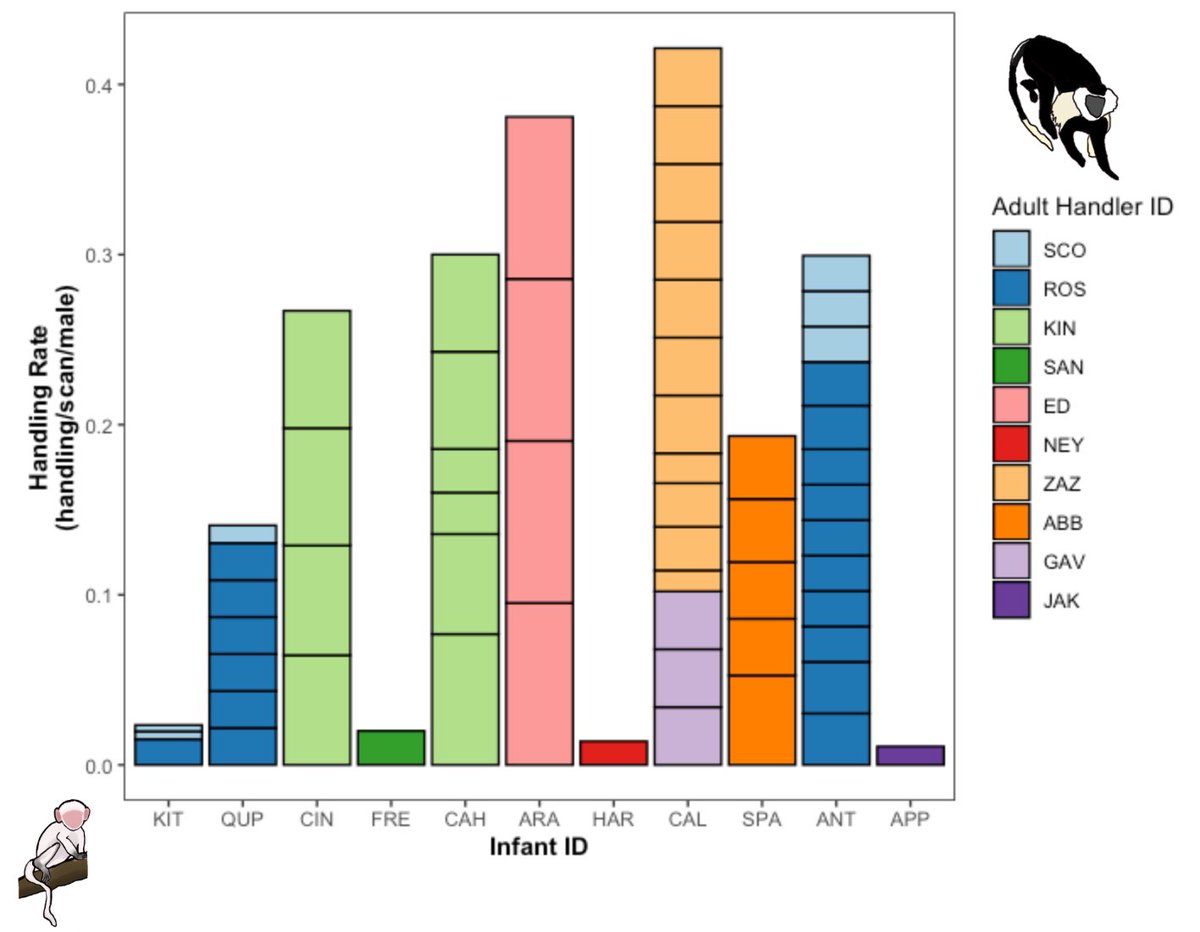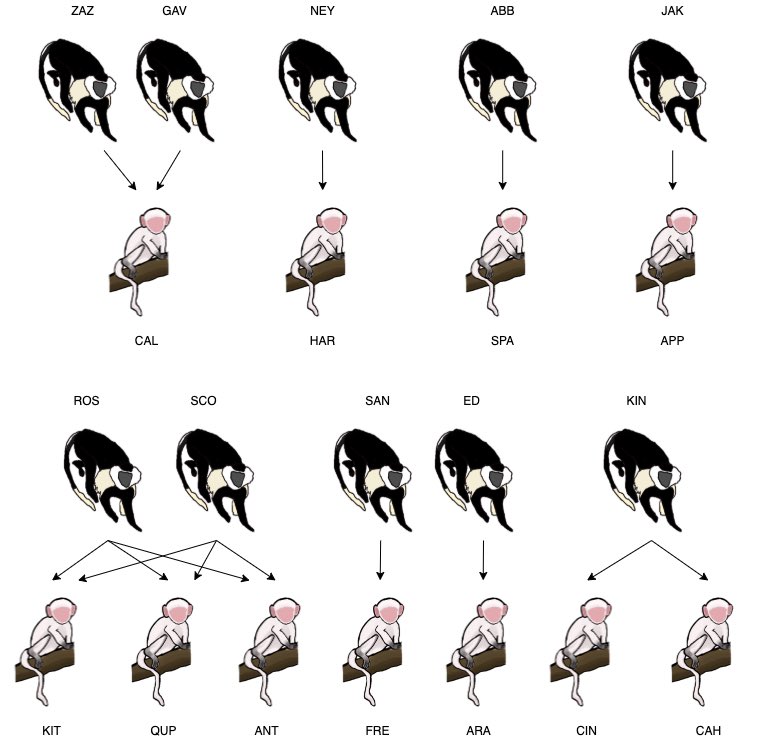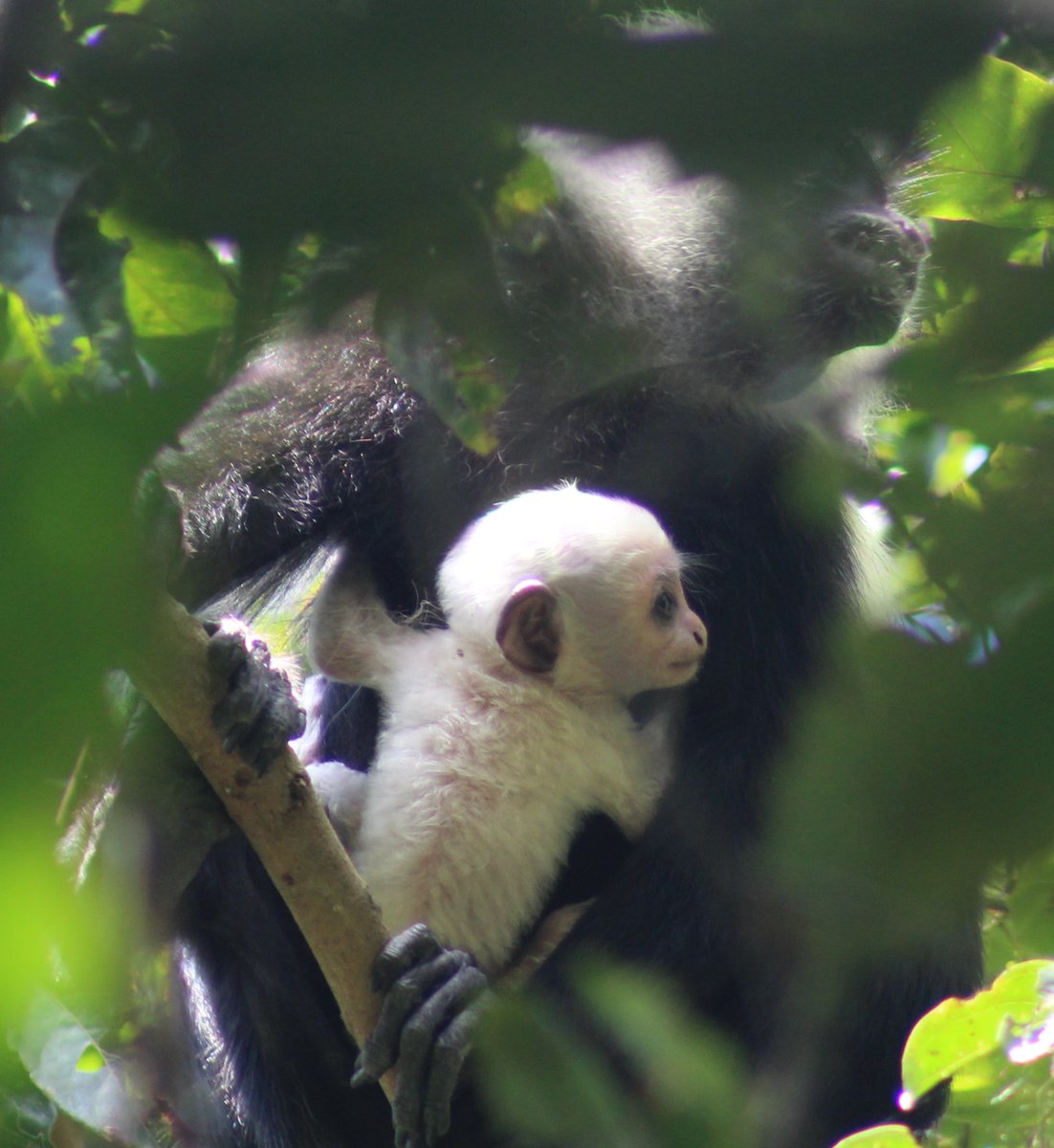Hello #AnimBehav2021! I will be sharing some results from my masters research on infant care by adult males in the Rwenzori Angolan colobus. While infant care by individuals other than the mother is common in mammals, infant care by adult males is relatively rare. (1/6)
Males may engage in infant care to form “friendships” with the mothers of the infants and gain access to future reproductive opportunities, or when they have a high degree of paternity certainty and are likely caring for their own offspring. #AnimBehav2021 (2/6)
We tested the latter. The Rwenzori Angolan colobus at Lake Nabugabo, Uganda form core units consisting of one male/multiple females (OMU) or multiple males/multiple females (MMU). Compared to other colobus, they exhibit higher rates of infant care by males. #AnimBehav2021 (3/6)
We predicted that males in OMUs would engage in more care as they would be more certain of their paternity. We found no differences in handling rates between unit types, but we did find that males in OMUs exhibit higher indirect care, or “babysitting.” #AnimBehav2021 (4/6)
Males exhibited clear preferential handling of infants. Each male handled a maximum of three infants, and each infant was handled by a maximum of two males. #AnimBehav2021 (5/6)
Males appear to be exhibiting more infant care when they are the likely fathers and show a clear preference for handling certain infants. Genetic analysis will reveal more about the unique social dynamics of these cool colobines ( by @sammstead). #AnimBehav2021 (6/6)
by @sammstead). #AnimBehav2021 (6/6)
 by @sammstead). #AnimBehav2021 (6/6)
by @sammstead). #AnimBehav2021 (6/6)

 Read on Twitter
Read on Twitter